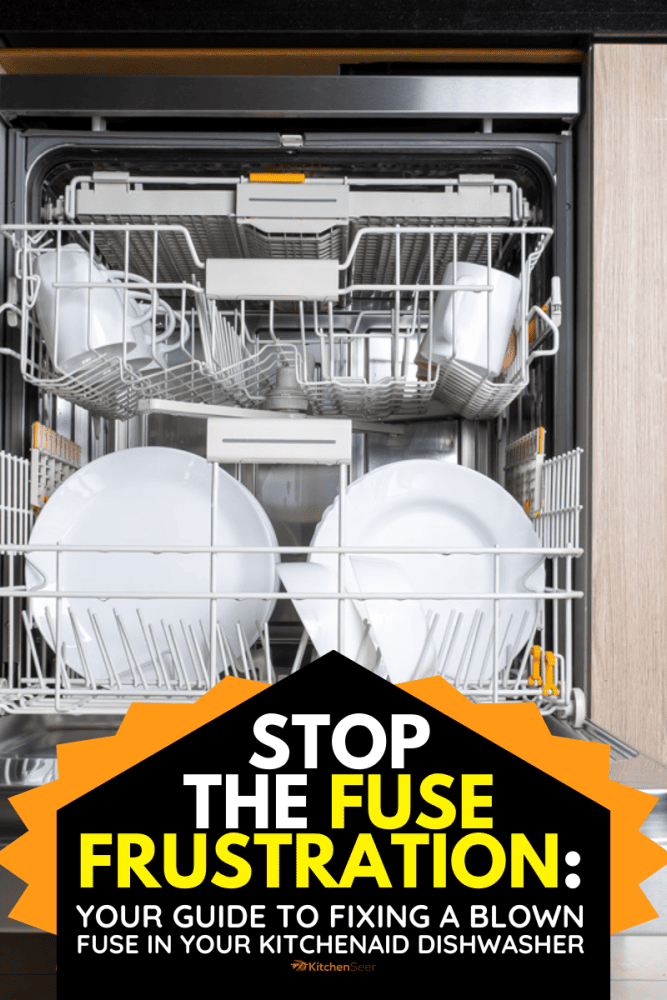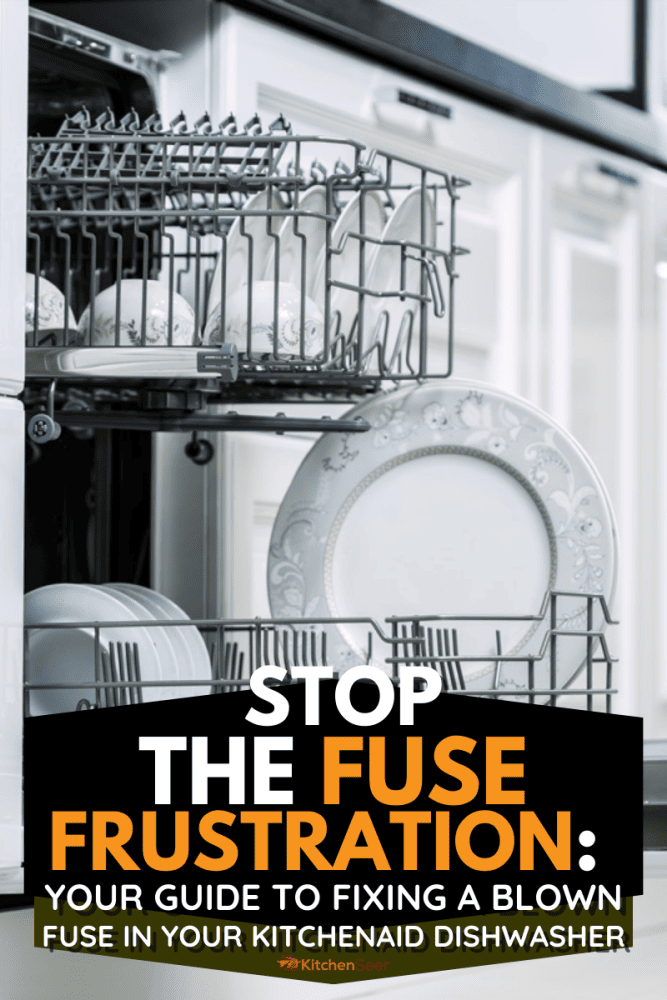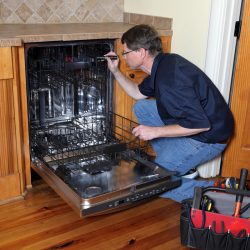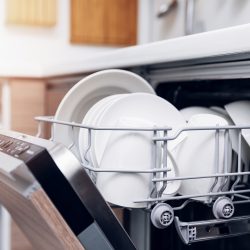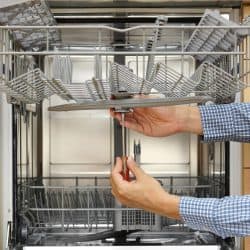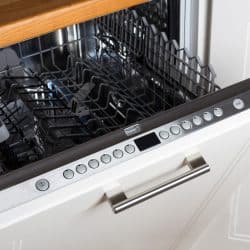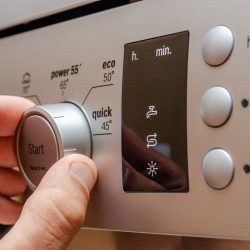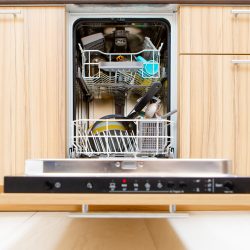Are you tired of constantly dealing with a blown fuse in your KitchenAid dishwasher?
It's like trying to solve a never-ending puzzle—you replace the fuse, and it blows again. It's frustrating, time-consuming, and can even ruin your day.
But don't worry, we've got your back. Understanding the reasons behind this issue is crucial for finding a solution and preventing further inconvenience.
In this article, we will explore some of the primary reasons why your KitchenAid dishwasher continuously blows fuses and what you can do about it.
Continue reading to learn more about the potential causes and ways to address them, so you can enjoy a hassle-free dishwashing experience.
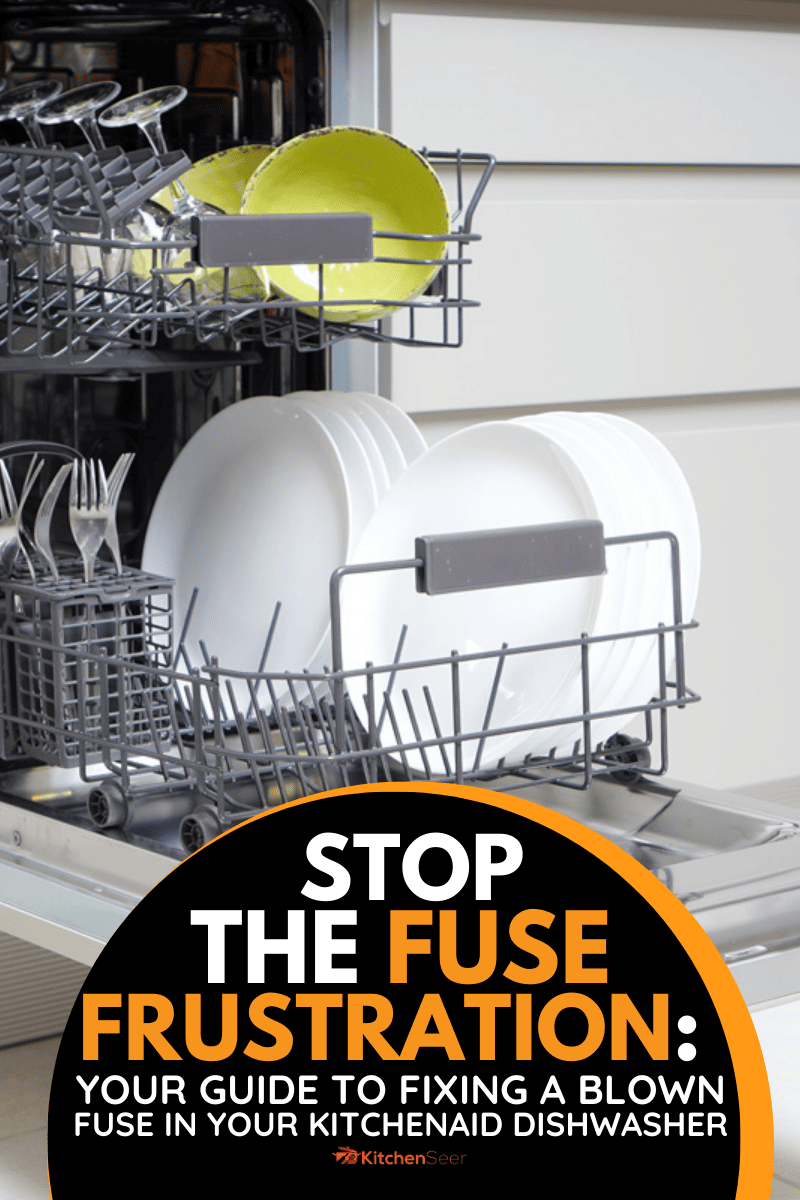
Common Causes for Blowing Fuses

There are a few common reasons why your Kitchenaid dishwasher might be blowing fuses.
Let's explore some of these reasons and understand what might be causing the issue in your appliance.
Faulty Door Switch
One possible cause for your dishwasher blowing fuses is a faulty door switch. The door switch is responsible for keeping the dishwasher running while the door is closed.
If the switch is not functioning correctly, it can lead to an incomplete electrical circuit and cause the fuse to blow.
Damaged Heating Element
The heating element is essential for heating the water and drying the dishes during the wash cycle. If the heating element has any damage, it can cause a short circuit, leading to blown fuses.
Problematic Control Board
The control board manages all of the dishwasher's functions and monitors its performance. If the control board is malfunctioning, it can cause electrical problems that lead to blown fuses.
Diagnosing the Issue
In this section, we will explore the methods to diagnose the issue with your Kitchenaid dishwasher when it keeps blowing fuses.
Visual Inspection
Begin by conducting a thorough visual inspection of your dishwasher. Start by examining the wiring and connections inside the appliance. Loose connections, broken wires, or problems with the wire harness can cause the thermal fuse to blow.
Next, check for any water leaks or moisture within the dishwasher. If dripping or stagnant water comes into contact with electrical components, it could cause the fuse to blow.
Using a Multimeter
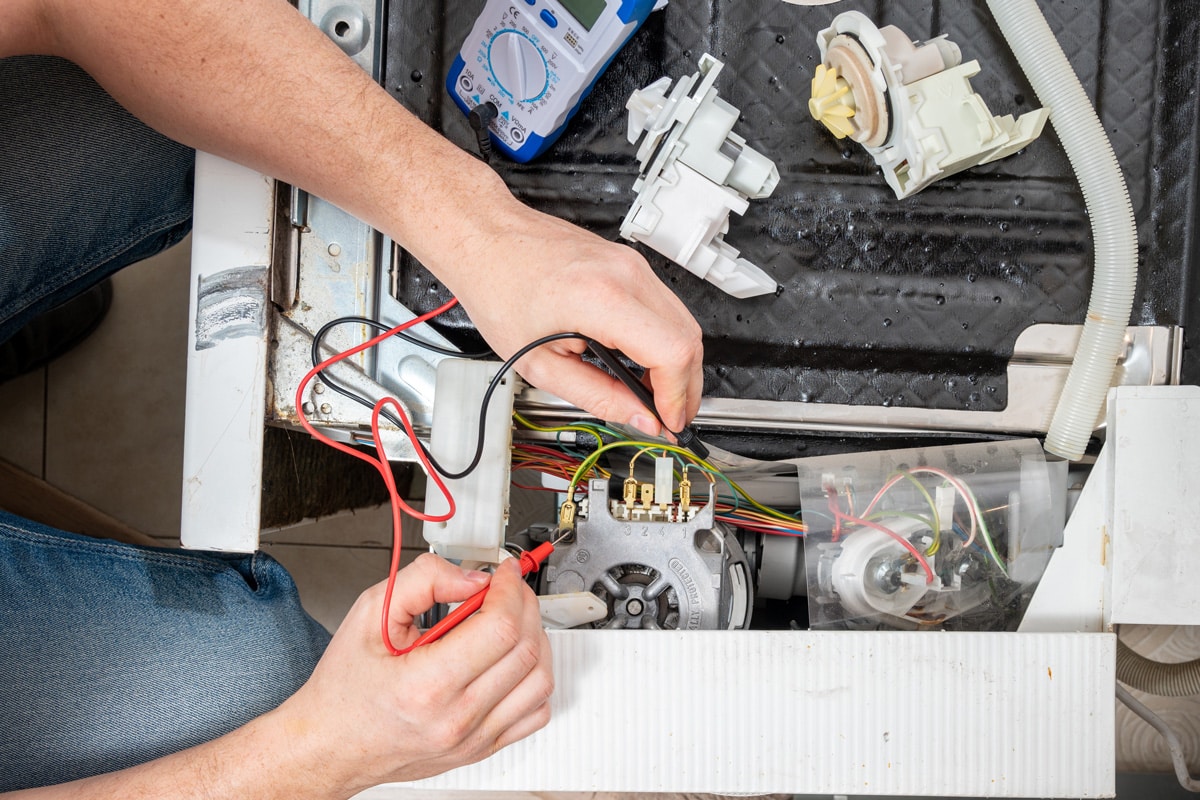
To diagnose issues related to the dishwasher's electrical components, a multimeter is a valuable tool.
Check out this multimeter on Amazon.
First, you'll want to test the thermal fuse itself. Using your multimeter, check for continuity between the fuse terminals. If there is no continuity, the fuse is blown and needs replacement.
Additionally, you can use the multimeter to test other components such as the temperature sensor. A faulty temperature sensor might also be the reason why the thermal fuse keeps blowing.
By using these diagnostic methods, you can identify the root cause of your Kitchenaid dishwasher's fuses blowing and take the necessary steps to resolve the issue.
Solutions for Fuse Issues
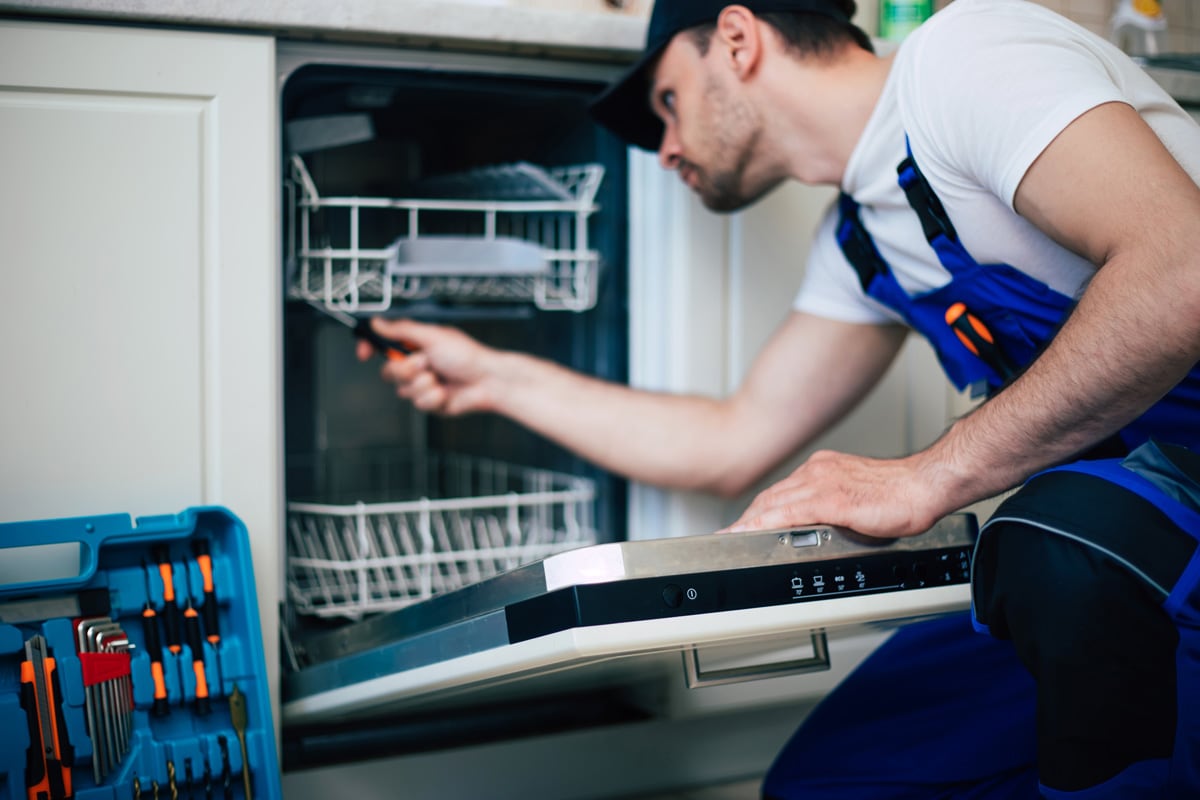
Next, let's discuss possible solutions for some of the common problems that may cause your dishwasher to blow fuses.
Replacing the Door Switch
To check for faults in the door switch, you can carefully remove the control panel and use a multimeter for power connectivity tests.
If your findings show that the door switch is faulty, replacing it with a new one could resolve the problem.
If you're unsure about how to proceed with replacing the door switch, it may be best to consult with a professional technician.
Fixing the Heating Element
To resolve a damaged heating element, first, turn off and unplug your dishwasher. Then, inspect the heating element for signs of damage or wear. If you discover any issues, replacing the heating element may fix the problem.
Again, if you're unsure about how to perform the replacement, it's best to consult with a professional technician.
Repairing the Control Board
Before attempting any repairs, ensure that your dishwasher is unplugged from the power source. Then, inspect the control board for visible damage or issues with the wiring.
If you identify any problems or feel uncertain about how to proceed, it's best to seek the help of a professional technician.
By following these steps and troubleshooting your dishwasher's fuse issues, you'll be on your way to resolving the problem and enjoying a fully-functional Kitchenaid dishwasher.
Preventative Measures
To prevent your KitchenAid dishwasher from consistently blowing fuses, there are a few strategies you can implement.
Mastering these preventative measures will keep your dishwasher functioning smoothly and avoid any unwanted disruptions.
Regular Maintenance
Staying on top of regular maintenance checks is crucial for avoiding fuse breakdowns. Keep an eye on your dishwasher's wiring and contacts, ensuring they're secure and free from damage. Loose electrical connections, for instance, are a common cause of blown fuses.
By inspecting and fixing any issues in a timely manner, you can minimize the chances of experiencing blown fuses. It's also essential to clean your dishwasher regularly, paying close attention to filters and water lines.
This will prevent debris and buildup from causing any water leaks or damage to electrical components, which can lead to blown fuses.
Avoiding Overloads
Another tip to prevent blown fuses in your dishwasher is to avoid overloading it. Overloading can cause a range of problems, including putting excessive strain on the motor and heating elements.
It's important to load your dishwasher correctly and follow the manufacturer's guidelines regarding the capacity and placement of dishes.
In addition, make sure to keep your dishwasher's wattage requirements in mind. Using your dishwasher in conjunction with other high-wattage appliances on the same circuit could lead to blown fuses.
If necessary, reorganize your appliance usage to stay within the limits of your home's electrical system.
Following these preventative measures will help you avoid blown fuses in your KitchenAid dishwasher and keep it running at its best for years to come.
When to Call a Professional
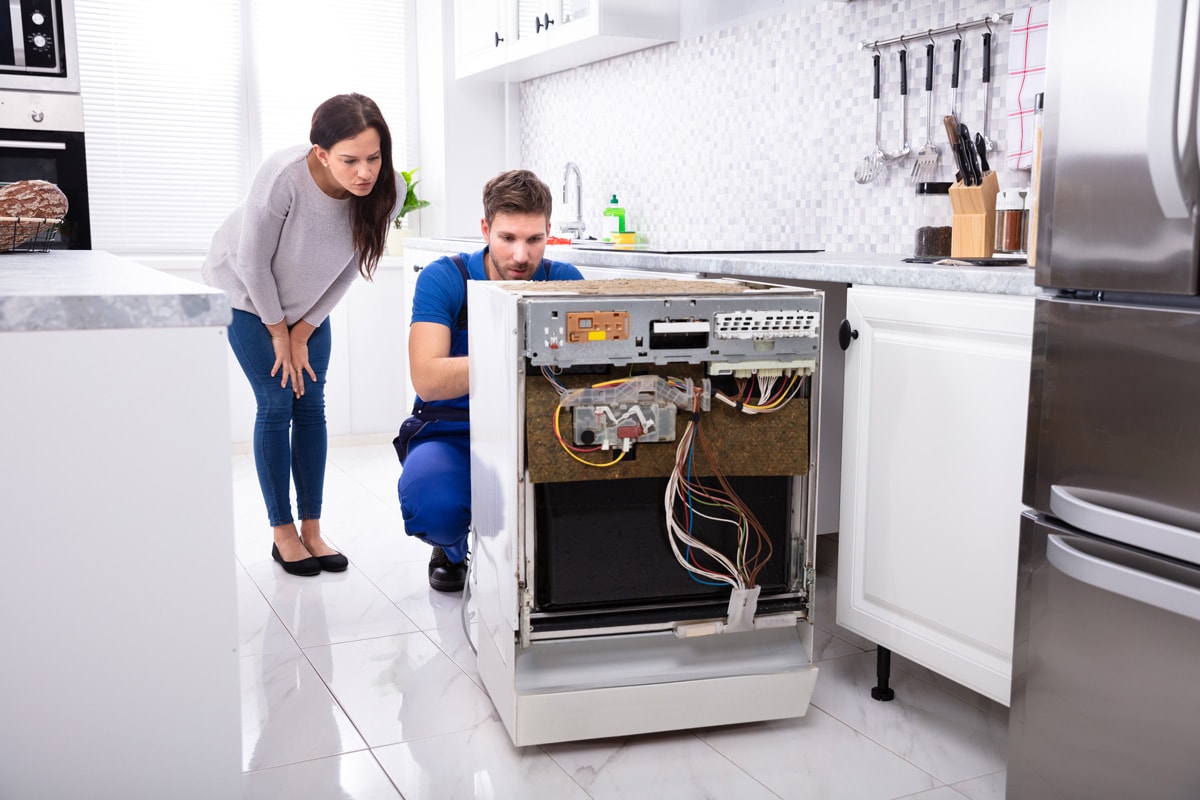
While there are some simple issues you may be able to diagnose and fix yourself, there are times when calling a professional is the best course of action.
If you've inspected the wiring, the thermal fuse, and other components and still can't identify the problem, it's time to get expert help.
Repeated blown fuses could indicate a more serious issue with the dishwasher that requires specialized knowledge and tools.
A professional technician can accurately diagnose the problem and safely repair it, ensuring that your dishwasher is functioning correctly and efficiently.
Additionally, if you notice water leaks or damage to the electrical components, it's crucial to call a professional immediately. Water and electricity don't mix, and attempting DIY repairs under these conditions can be dangerous.
A qualified technician will know how to handle such situations safely and effectively.
In case you suspect a faulty or worn component like the heating element or the wash impeller, it's better to leave the replacement to the professionals.
Remember, attempting to fix complex issues on your own can not only be dangerous but also void the warranty of your appliance.
Always consider the potential risks and your own expertise before trying to fix a problem yourself, and don't hesitate to call a professional when needed.
Wrapping Up
By understanding the common causes and using diagnostic methods, you can identify the issue and take the necessary steps to resolve it.
Regular maintenance and avoiding overloads are also essential for preventing blown fuses in the future.
While some issues can be fixed on your own, it's important to know when to call a professional to avoid any risks or voiding your appliance's warranty.
By following these simple tips and being aware of the potential issues that can lead to a blown fuse, you will be able to prolong the life and performance of your KitchenAid dishwasher.
Happy dishwashing!
If you enjoyed reading this article, you might also like:
Kitchenaid Dishwasher Smells Like It Is Burning – Why? What To Do?
Kitchenaid Dishwasher Beeping But Not Starting – What’s Wrong?


